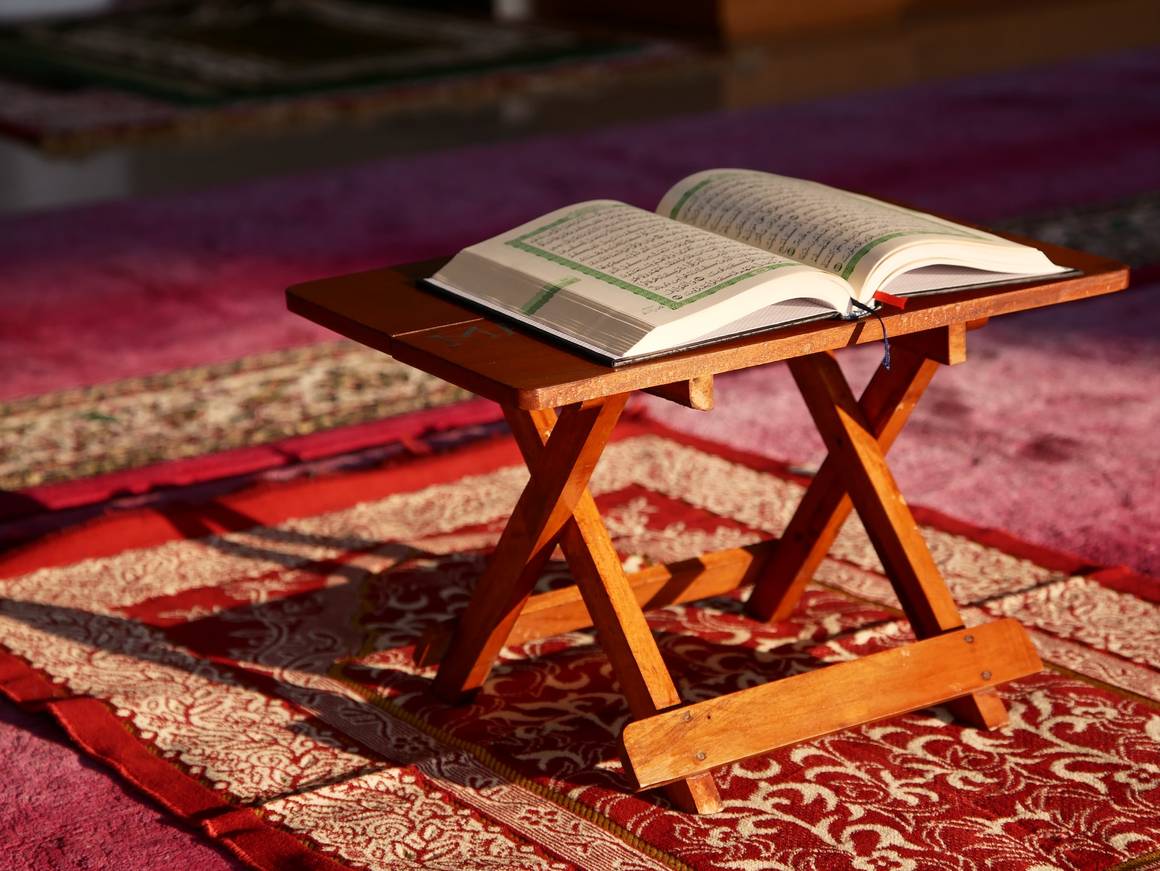Prophet Muhammad (PBUH), also known as Muhammad ibn Abdullah, is considered by Muslims to be the final prophet of God in a long line of prophets that includes Adam, Abraham, Moses, and Jesus. His teachings and actions have had a profound impact on the world.
As a young man, Prophet Muhammad (PBUH) worked as a merchant and was known for his honesty and integrity.
Prophet Muhammad (PBUH) was born in Mecca in 570 CE. His father, Abdullah, died before his birth and his mother, Aminah, passed away when he was six years old. He was then raised primarily by his paternal uncle, Abu Talib. Despite being orphaned at a young age, Prophet Muhammad (PBUH) grew up to be a well-respected member of Mecca's society.
As a young man, Prophet Muhammad (PBUH) worked as a merchant and was known for his honesty and integrity. He was also known for his compassion and generosity towards the poor and the needy. He had a reputation for being a reliable and trustworthy person, which earned him the nickname "Al-Amin" (the trustworthy).
In his twenties, Prophet Muhammad began to retreat to the mountains around Mecca for periods of meditation and reflection. It was during one of these retreats, at the age of 40, that he received his first revelation from God through the angel Gabriel. These revelations would continue for the rest of his life, and they form the basis of the Quran, the sacred text of Islam.
At first, Prophet Muhammad shared his revelations only with close family and friends, but eventually, he began to publicly proclaim the message of Islam. This message was met with resistance from the powerful leaders of Mecca, who saw the teachings of Islam as a threat to their way of life. Despite this opposition, Prophet Muhammad and his followers continued to spread the message of Islam, and gradually a community of believers began to form around him.
Prophet Muhammad faced significant struggles while preaching the message of Islam.
Prophet Muhammad faced significant struggles while preaching the message of Islam. When he first began to publicly proclaim the message, it was met with resistance from the powerful leaders of Mecca. They saw the teachings of Islam as a threat to their way of life and their hold on power.
One of the main reasons for the opposition to Islam was that it challenged the traditional polytheistic beliefs and practices of Mecca. The Meccans worshiped multiple gods and idols, while Islam called for the worship of one God alone. This challenged the Meccans' traditional way of life and their social and economic structures.
As a result, Prophet Muhammad and his followers faced intense persecution from the Meccan leaders. They were subjected to verbal and physical abuse, and their businesses were boycotted. Some of the Muslims were even tortured and killed. Despite this persecution, Prophet Muhammad (PBUH) and his followers continued to spread the message of Islam.
In 622 CE, under increasing pressure from the Meccan leaders, Prophet Muhammad and his followers migrated to Medina, in an event called the Hijra. This migration marked the beginning of the Islamic calendar and the establishment of the first Muslim community in Medina.
Even in Medina, Prophet Muhammad and his followers faced challenges. They had to deal with conflicts with the Jewish tribes of Medina, and the Meccan leaders continued to oppose them, launching several military expeditions against Medina.
Despite these challenges, Prophet Muhammad and his followers were able to establish a stable and prosperous community in Medina. The message of Islam continued to spread, and eventually, Mecca was conquered by Muslims, and the majority of the Arabian Peninsula came under Islamic rule.
Was Islam spread through the sword?
Prophet Muhammad's views on war and violence were nuanced and guided by the principles of self-defense and justice. He believed that war should only be used as a last resort and as a means of defending oneself and one's community from aggression. He emphasized the importance of treating prisoners of war humanely, and prohibited the killing of non-combatants, such as women, children, and the elderly.
During his lifetime, Prophet Muhammad and his followers were forced to defend themselves against aggression from the Meccan leaders, who opposed the spread of Islam and persecuted the Muslims. As a result, several military expeditions were launched against Mecca, with the goal of protecting the Muslims and establishing their freedom to practice their religion.
Prophet Muhammad did not force people to accept Islam when he had total control.
At the same time, Prophet Muhammad (PBUH) also encouraged peaceful coexistence and diplomacy. He entered into treaties and alliances with other groups, and sought to resolve conflicts through negotiation and mediation. He also emphasized the importance of upholding agreements and honoring treaties.
Prophet Muhammad (PBUH) emphasized the importance of justice and fairness in warfare. He prohibited the killing of prisoners of war and encouraged the fair treatment of them, and prohibited the destruction of crops and the killing of animals.
During Prophet Muhammad's lifetime, there were instances where he and his followers had military and political control over certain territories and populations. However, it is important to note that Prophet Muhammad did not force people to accept Islam when he had total control.
Prophet Muhammad always emphasized the importance of freedom of religion, and encouraged people to come to Islam voluntarily
Prophet Muhammad always emphasized the importance of freedom of religion, and encouraged people to come to Islam voluntarily, through persuasion and education. He believed that true faith could only be accepted willingly and freely. He also protected the rights of minority communities, such as Jews and Christians, to practice their own religions.
When Mecca was conquered, Prophet Muhammad granted amnesty to the Meccans and many of his former enemies were able to convert to Islam and become part of the Muslim community. He also established a treaty of peace and cooperation with the Meccans, which helped to establish a lasting peace and stability in the region.
In other territories that were conquered by the Muslims, the people were given the choice to either convert to Islam, pay a tax (jizya) in exchange for protection, or leave. Those who chose to convert, were not forced to do so, they did it voluntarily, and those who chose not to convert were allowed to keep their own religions and were protected by the Muslim government.
It's important to note that, in general, throughout history, many conquerors and rulers have used force to convert people to their own religion, however, this was not the case with Prophet Muhammad (PBUH) and his teachings.
Why did prophet Muhammad had 12 wives and what were his views about women?
Prophet Muhammad married multiple women during his lifetime for a variety of reasons. Some of his marriages were political in nature, and were meant to establish alliances and build relationships with other tribes and leaders.
Many of his marriages were to widows and orphans who were in need of protection and support.
In addition, it is important to note that Prophet Muhammad's marriages were not based on lust or personal desire, but on the principles of compassion and responsibility. Many of his marriages were to widows and orphans who were in need of protection and support.
He emphasized the importance of education for women and encouraged them to seek knowledge.
In regards to women, Prophet Muhammad emphasized their equality with men in terms of their spiritual status before God. He emphasized the importance of education for women and encouraged them to seek knowledge. He also asserted the importance of treating women with respect and dignity, and discouraged practices such as female infanticide, which were common in pre-Islamic Arabia. He strongly specified the importance of the rights of women in marriage and divorce, and established laws to protect them.
How was Prophet Muhammad's character?
One of the most striking aspects of Prophet Muhammad's character was his kindness and compassion. He was known for his generosity, especially to the poor and needy. He was also known for his patience and forgiveness, even towards those who had harmed him.
He promoted the education of women and the importance of treating women with respect and equality.
Prophet Muhammad also placed great emphasis on the importance of education and knowledge. He encouraged his followers to seek knowledge, even if it meant traveling to distant lands. He promoted the education of women and the importance of treating women with respect and equality.
One of the most remarkable aspects of Prophet Muhammad's character is his ability to balance the spiritual and the worldly aspects of life. He was always mindful of his spiritual duties and responsibilities, but he also had a deep understanding of the world and the people in it.
In addition to these qualities, Prophet Muhammad was known for his honesty and integrity. He was always truthful, even in difficult situations, and he never wavered in his commitment to justice and fairness.
May the peace and blessings of Allah be upon our beloved Prophet.


